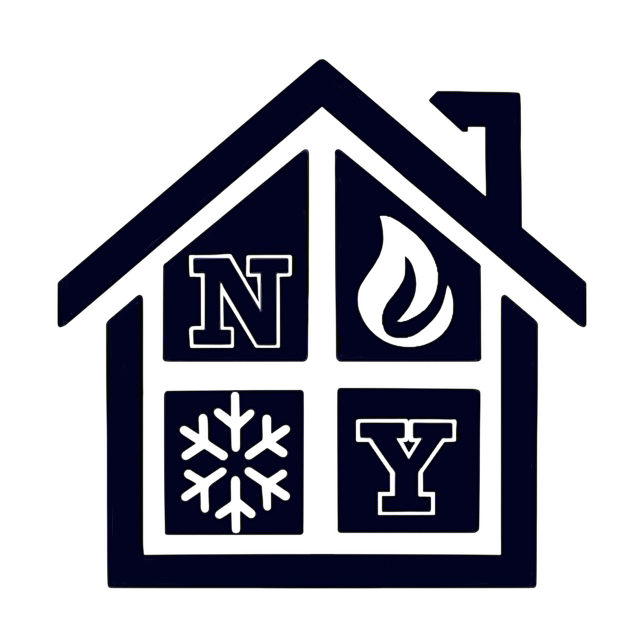Simple Ways to Make Your Home More Energy Efficient
- New York Energy Assessments

- Jun 2, 2025
- 4 min read
Updated: Jul 26, 2025
In today’s world, energy efficiency isn't just a trend; it’s a necessity. With rising energy costs and growing environmental concerns, homeowners are seeking simple ways to enhance their home’s energy efficiency. Implementing energy-efficient practices can lead to substantial savings on utility bills and create a more sustainable living environment for you and your family. This blog post explores practical tips to make your home more energy-efficient.
Upgrade to Energy Efficient Appliances
One of the most effective ways to boost energy efficiency at home is by upgrading to energy-efficient appliances. Most households have appliances that consume a considerable amount of energy. When shopping for new appliances, look for the Energy Star label. These appliances are designed to use less energy while delivering the same performance as traditional models.
For example, an Energy Star washing machine uses about 25% less energy and 33% less water than standard models. This means you’ll not only save on your energy bills but also reduce your water consumption.

By replacing aging appliances with newer energy-efficient versions, you may see significant reductions in your monthly energy costs. Additionally, many utility companies offer rebates for upgrading to Energy Star-rated products, further offsetting the initial investment.
Insulate Your Home Properly
Proper insulation is crucial for maintaining a comfortable temperature in your home and reducing energy costs. Without adequate insulation, your home loses heat in the winter and cool air in the summer, forcing your heating and cooling systems to work harder.
Consider checking insulation in areas such as the attic, basement, and walls. If you find your insulation lacking, it might be time for an upgrade. For instance, adding fiberglass batts or spray foam insulation can significantly improve your home's thermal performance.

Statistics show that a well-insulated home can save you up to 20% on heating and cooling costs. This investment not only enhances your home energy efficiency but also contributes to a more comfortable living atmosphere.
Seal Windows and Doors
Windows and doors are common culprits when it comes to energy loss. Drafts can enter your home through gaps and cracks, making your heating and cooling systems work overtime.
To combat this issue, inspect your windows and doors for any leaks. You can seal these openings using caulk or weatherstripping. For windows, consider installing energy-efficient models that have double or triple glazing. These can significantly decrease your energy consumption and provide better insulation.

In fact, sealing your windows and doors can improve energy efficiency by as much as 10-20%. This small change can make a big difference in your home’s overall energy consumption.
Embrace Smart Technology
Incorporating smart technology into your home can enhance its energy efficiency significantly. Smart devices can help you monitor and control energy usage from nearly anywhere.
Consider investing in a smart thermostat. These devices learn your schedule and can adjust your heating and cooling systems accordingly. For example, if you leave for work at the same time every day, your smart thermostat can raise or lower the temperature during that period, ensuring efficient energy usage.

Research shows that smart thermostats can lead to energy savings of about 10-15% annually. Pairing this with smart lighting systems, which can be programmed to turn off when not in use, allows for even more energy savings.
Use Energy Efficient Lighting
Switching to energy-efficient lighting is another effective way to cut down on energy use. Conventional incandescent bulbs consume a significant amount of energy and have a shorter lifespan compared to their energy-efficient counterparts.
LED bulbs, for example, use up to 80% less energy than traditional bulbs and can last up to 25 times longer. By making this switch, you drastically reduce energy consumption and replacement costs over time.
Moreover, using timers or smart lighting can optimize energy usage, ensuring lights are only on when needed. This simple adjustment can lead to noticeable savings on your electricity bill.
Find the Right Energy Audits
To fully understand your home’s energy efficiency, consider an energy audit. Professional energy auditors assess your home and identify areas for improvement. They use tools like blower doors and thermal imaging to pinpoint leaks and insulation issues.
This comprehensive evaluation can provide insight into how your home’s energy efficiency can be improved. Knowing the areas that require attention equips you to make informed decisions about necessary upgrades.
If you want to improve your home energy efficiency, contacting a local energy audit service is a great place to start. In many cases, they also provide recommendations for available incentives and rebates that can help offset costs.
Final Thoughts
Making your home more energy-efficient doesn’t have to be complex or expensive. Implementing these simple tips can lead to significant savings on utility costs and create a comfortable, environmentally-friendly living space for you and your family.
By upgrading appliances, improving insulation, sealing windows and doors, adopting smart technology, switching to energy-efficient lighting, and conducting energy audits, you’ll be on your way to a more energy-efficient home. Every small change helps, contributing to both your personal savings and a healthier planet.




Comments